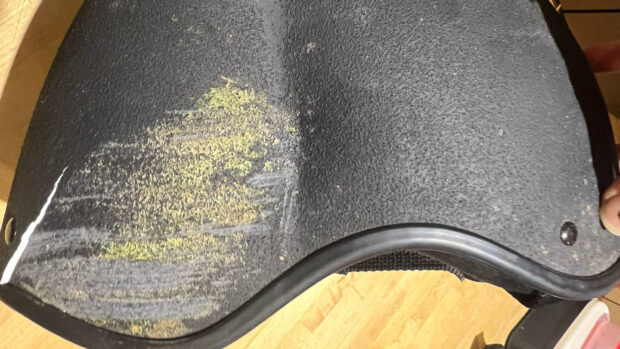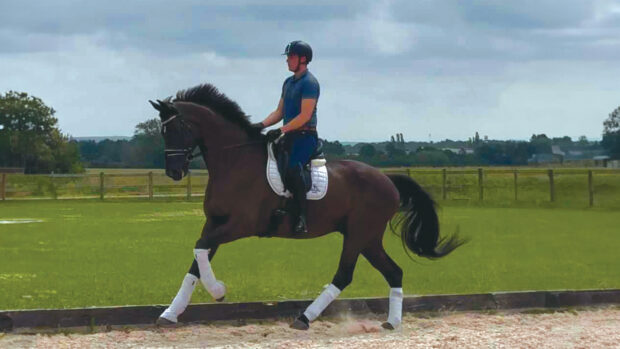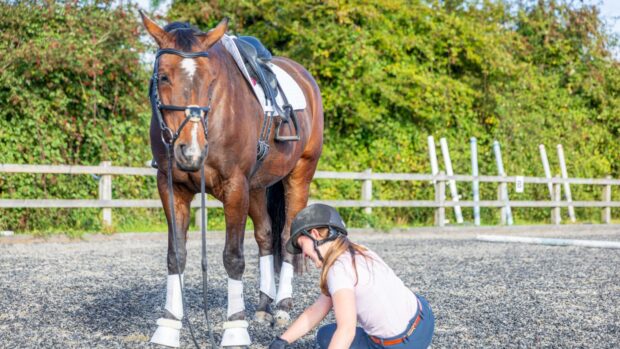Post Traumatic Stress Disorder (PTSD) is something that most people have heard about — but perhaps not in the equestrian industry. While incidents and accidents are far from uncommon, we tend to hear more about physical issues in contrast to the mental distress harrowing accidents can have on people.
You might think that PTSD is something reserved for those who have been in battle, but it’s a lot more common in equestrian sport than you might think.
“PTSD is something that can affect anyone who has experienced a trauma of any kind, whether being involved in an accident, witnessing something distressing or as a result of a loss,” says counsellor Emily Fieldhouse.
“If someone is experiencing symptoms or severe mood changes which are affecting their life following a traumatic event, it is important to seek advice from their GP or a qualified Counsellor.
Fear and anxiety
Common feelings associated with PTSD include anger at what has happened, guilt, isolation, a lack of confidence, fear and anxiety as well as being unable to relate to others or connect with them emotionally.
However, immediate help should be sought if a person is experiencing suicidal thoughts or thoughts of self- harm following a traumatic event.
“It is natural for many of us to feel as though we should be able to overcome how we feel and too often, I will work with clients who have struggled with PTSD for longer than necessary as they were worried about seeking help,” says Emily.
Sarah Skillin was competing at BE90 with her horse Theo when she had an accident that left her unable to jump and almost stopped her riding completely.
“I had a nasty fall eventing,” she says. “We came through the water without enough power and had issues jumping out over a solid jetty; I hit the ground head first. I had post concussion syndrome and couldn’t ride properly for six weeks. Six weeks later, I tried to go cross country schooling and couldn’t get Theo anywhere near a fence. I couldn’t even jump a 1ft cross pole.
“I had flashbacks — when I was having an issue riding, I would the imagine the fall in my head. I went away training at a friend’s and fell off three times in one lesson. I tried to jump on another horse and couldn’t put my foot in the stirrup. It was at that point I just let go and just cried and cried. It was awful.”
Sarah still struggles going back to the venue but says that good friends, refocusing her efforts on dressage and also having group sessions with performance psychologist Charlie Unwin have helped.
“I am planning to do some British Showjumping with Theo this season, which is something I wouldn’t have thought possible after the accident.”
‘Worst case scenarios’
Kelly McCarthy-Maine had PTSD, brought on by the issues she experienced during recovery from an accident.
“My hospital experience, multiple surgeries, the pain, intolerance to pain meds and a lot more meant I started shaking and became hysterical when I went for follow ups,” says Kelly.
“The riding side was complicated too. I wanted to ride, but I’d suddenly gained this vivid imagination that would run through all the worst case scenarios. The big feature was that the horse would fall on me and I’d end up re-breaking my wrist.”
Kelly’s injury occurred following an accident cross country schooling a young horse. This resulted in a complicated injury to her wrist that required multiple reconstructive surgeries and doctors warning that she only had six months to regain full movement.
“It took a long time to get over it — bizarrely the biggest milestone was actually falling off again and not hurting myself.”
Kelly didn’t work with a counsellor or psychologist but says she believes it would have helped her recovery. “The source of the problem was the pain — it tried to convince me I was scared. I had a great support network though, and I’m forever grateful to them all for putting forward equally convincing arguments that I could do it!”
Accidents don’t always occur when competing or in the ‘higher risk’ end of our high risk sport. Daisy Smith went for a hack and ended up in an air ambulance.
“I was just going for a walk around the block and the horse spun around and bolted,” says Daisy. “My foot became caught in the stirrup and I was dragged until I hit a barbed wire fence.”
This left Daisy with two dislocated collarbones, a fractured shoulder blade and a badly cut face due to the barbed wire. Mentally, it left Daisy with anxiety and suffering from panic attacks. It still impacts on her confidence now, some six years after the initial incident.
“I had to learn the triggers in order to manage the situation,” says Daisy. “I found that my breathing was a key part in the process of the panic attacks. I also sought help from a psychologist about six months later. I found this professional support really helped to make sense of what has happened and manage the situation.”
Continued below…
Like this? You might also enjoy reading these:
10 commandments for competition riders
How sports psychology helped an eventer overcome her rotational fall demons
Richie Moore runs Horses In Mind and is an equestrian mind coach. He gives five tips for people who think they might have PTSD:
1. Learn about PTSD. Identify how you feel and how it’s affecting you.
2. Don’t re-traumatise yourself. Trying to get back on too soon can worsen the issue.
3. Allow your feeling but don’t let yourself get stuck in the negative. These emotions can grow if given too much attention.
4. Talk about it, you may find support in a friend or another rider who’s had a similar experience.
5. Seek professional help. You’ll be surprised at how many effective techniques are out there.
For all the latest equestrian news and reports, don’t miss Horse & Hound magazine, out every Thursday



